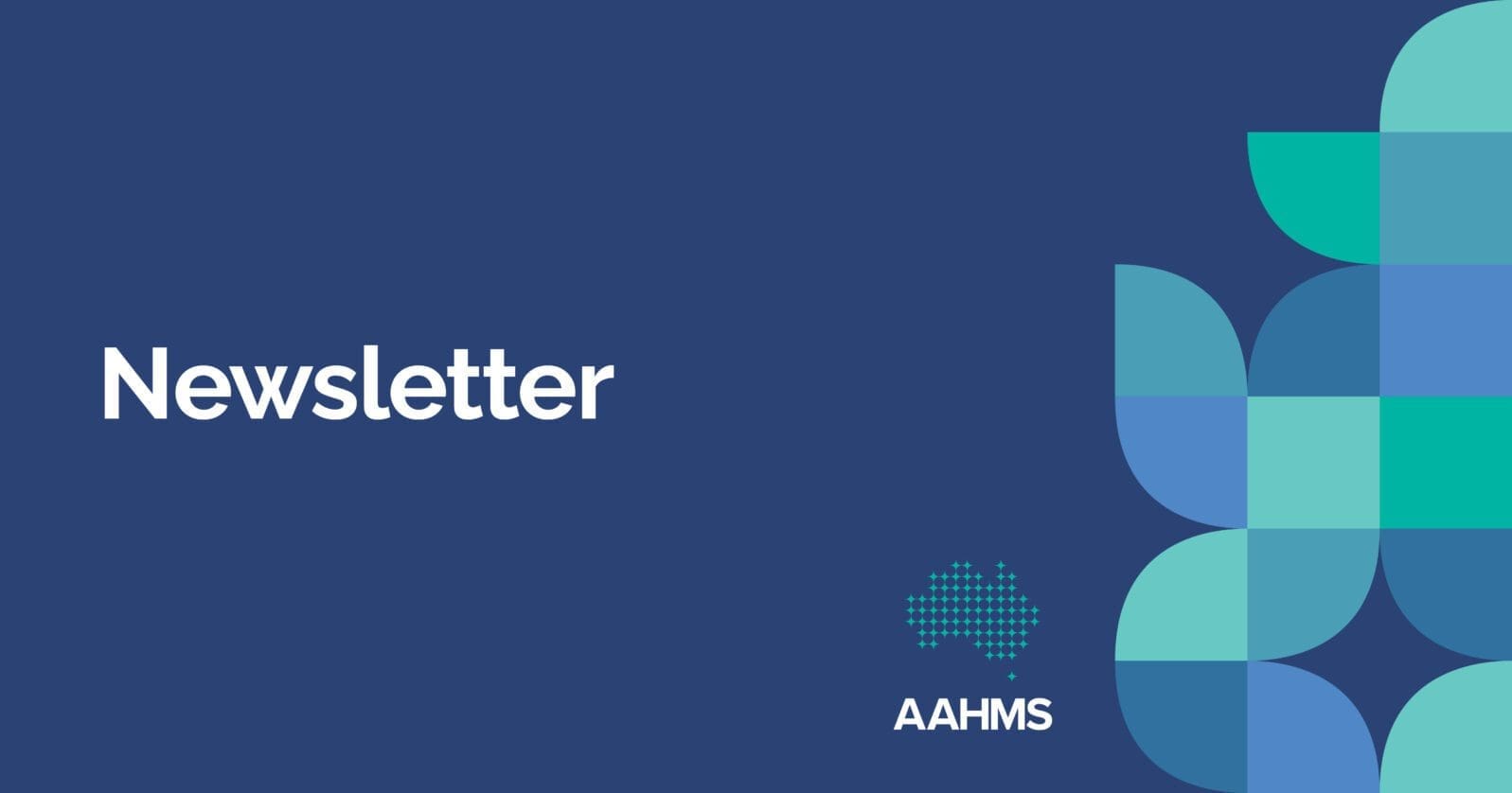Welcome to the February 2024 newsletter. In this edition:
A message from our President
This year marks 10 years
since the Academy’s inception – a decade of recognising and celebrating
scientific excellence, of working together to advance research and innovation,
and of nurturing the next generation of health and medical leaders.
We will be celebrating
this anniversary throughout the year. We will mark the occasion especially at
our annual meeting 24-25 October, held this year in Adelaide. We’ll also
be reflecting on our achievements in a series of 10 articles celebrating 10
Academy highlights, published on the AAHMS website – you can read our February
article on the Jian
Zhou Medal now. Most importantly, we’ll be using the opportunity to
consider what the Academy will achieve over the next 10 years and beyond.
Thanks to the diversity and collective excellence of our fellowship, the
Academy is uniquely positioned to address the most pressing, urgent and
important health challenges facing society. This purpose guides all our work
and will be an ongoing focus.
In 2024, one of the
Academy’s priorities will be progressing our major policy project: Research
and innovation as core functions in transforming the health system: A vision
for the future of health in Australia. We continue to engage with
government and industry on our recommendations, and we are working on plans to
follow up the priority policy actions highlighted in the report.
I’m also looking forward
to our first-ever Life as a Clinician-Scientist event for rural and regional
students, junior clinicians, and young researchers, which will take place
this year. Engaging with future clinician-scientists in remote and rural areas
has long been a priority for the Academy, and in September we will host an
online symposium to inspire and celebrate experts from these areas.
Our Life as a
Clinician-Scientist series kicks-off this year in Melbourne on 23 March.
Chaired by Professor Ingrid Scheffer AO FRS FAA FAHMS, this symposium will be
invaluable for medical and other clinical students, junior clinicians and early
career researchers considering this exciting career path. Our speakers include
Professor Fiona Stanley AC FASSA FAHMS, Professor Sam Berkovic AC FRS FAA FAHMS
and Professor Anne Kelso AO FAA FAHMS. Please spread word among your networks,
as many of our attendees learn about the program from word-of-mouth. Find more
information on
the event website.
I am also delighted to
report the appointment of an Interim CEO for AAHMS: Khaled Chakli will join us
at the end of this month for a handover period with CEO Catherine Luckin before
she departs on parental leave at the end of March for the remainder of the
year. Learn more about Khaled in a short article below.
Finally, I must share my
sincere congratulations to the seven Fellows recognised in the Order of
Australia honours. It’s wonderful to see our Fellows celebrated for their
achievements on a national stage. I also warmly congratulate Australians of
the Year, our Fellows Professors Georgina Long and Richard Scolyer. Many of
you would be aware of their incredible work in melanoma research, as well as
their brave journey to treat Richard’s brain cancer using innovative techniques
which will significantly advance treatments in this area. Learn more about the
Australia Day awardees on the AAHMS
website.
I hope you have had a
good start to the new year. As you can see, there is a lot happening here at
the Academy and we are excited about celebrating 10 years of the Academy with
you all.
Please find more
highlights on our recent activities outlined below.
Best wishes,
Professor Louise Baur AM
PresAHMS
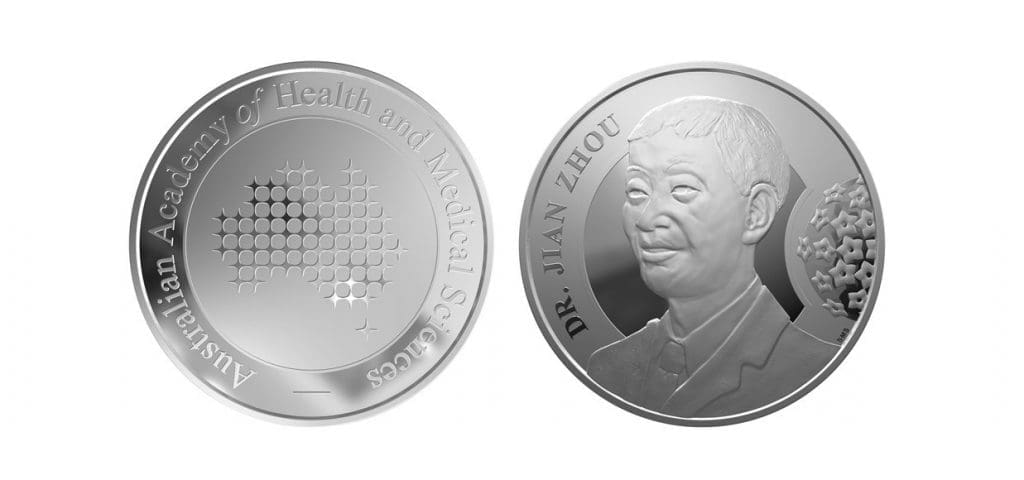
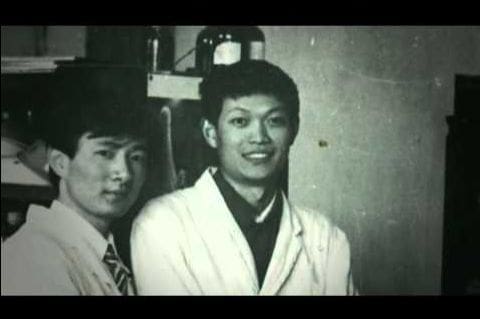
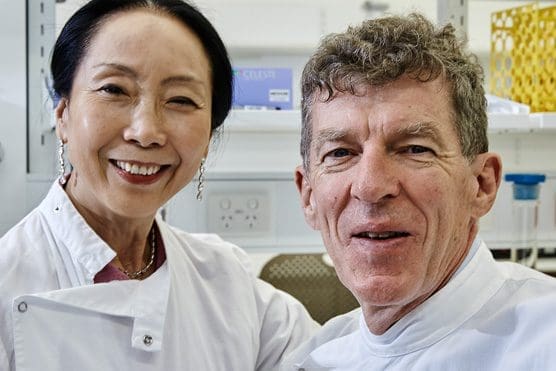
Celebrating 10 years of AAHMS: Jian Zhou Medal
This year marks 10 years since the Australian Academy of Health and Medical Sciences was formed. While looking forward to the next 10 years (and beyond), we’ll also be looking back at some of the highlights of the Academy’s key achievements. This month, we reflect on the Jian Zhou medal, first awarded in 2020. Seven exceptional researchers have been honoured with the medal so far: learn more about them and the inspiration behind the medal, Dr Jian Zhou, on our website.
Nominations for the 2024 medal close 31 April.
Pictured above: the Jian Zhou Medal, Professor Jian Zhou (right) and a colleague, Dr Dr Xiao Yi Sun and Professor Ian Frazer. Photographs©EPO.
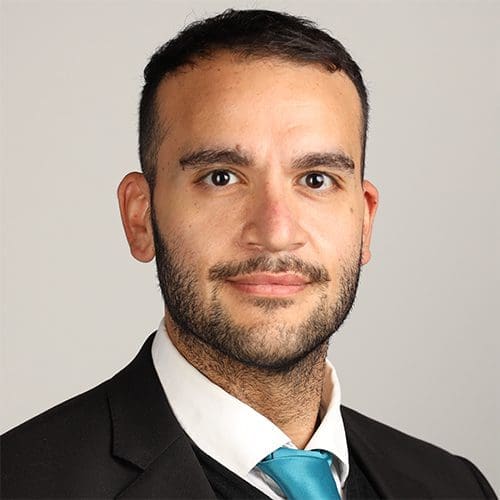
Meet our Interim CEO: Khaled Chakli
We are delighted to announce that Khaled Chakli has been appointed Interim CEO of the Academy.
Khaled Chakli is an experienced executive driven by a passion for fostering growth and instigating positive change within the health, science, and research sectors. His track record has solidified him as a dynamic leader and strategic thinker, showcasing an innate ability to make pivotal decisions while collaborating with diverse stakeholders to achieve ambitious objectives.
Having served as an Advisor to Senator Kim Carr, the former Federal Minister for Innovation, Industry, Science and Research, and the Victorian Minister for Emergency Services, Khaled transitioned to executive and leadership roles in prominent organisations such as the Australian Academy of Science, and the Australasian Institute of Digital Health where he currently serves as the Director of Leadership and Advocacy.
Khaled’s wealth of expertise spans strategic policy development, advocacy, organisational development, strategic planning, leadership, and operational management. Drawing from a profound understanding of the distinctive challenges and opportunities faced by peak bodies in health, science, and research, Khaled eagerly anticipates contributing his skills and passion to the advancement of the AAHMS.
Khaled will join the Academy from late February, taking on the CEO role while Catherine Luckin is on parental leave (from the end of March).
AAHMS policy news
The Academy has contributed to four policy submissions in the past two months. Our thanks to the Fellows and Associate Members and who assisted. The submissions are:
Survey: Baseline researcher access to public sector data
The Australian Research Data Commons are working on a project to measure researcher access to public sector data and assess the gap between demand and supply. Researchers are invited to complete an online survey and share their experiences. The survey is anonymous, and will take around 10-15 minutes to complete. The survey closes on 28 February 2024. Learn more and take the survey on the project website.
2024 World Health Summit Regional Meeting comes to Melbourne
This leading global health event is visiting Australian shores for the first time, creating a unique platform to elevate the health and wellbeing challenges that matter most in the Asia-Pacific region to a global stage. More than 100 captivating speakers will share insights and engage delegates on collaborative solutions to a range of health issues cutting across First Nations health, climate health, geopolitics and health, women’s health, health workforces, health financing and much more. First round speaker and session announcements are on the website. Don’t miss your chance to shape the future of health across Asia and the Pacific, 22-24 April in Melbourne.
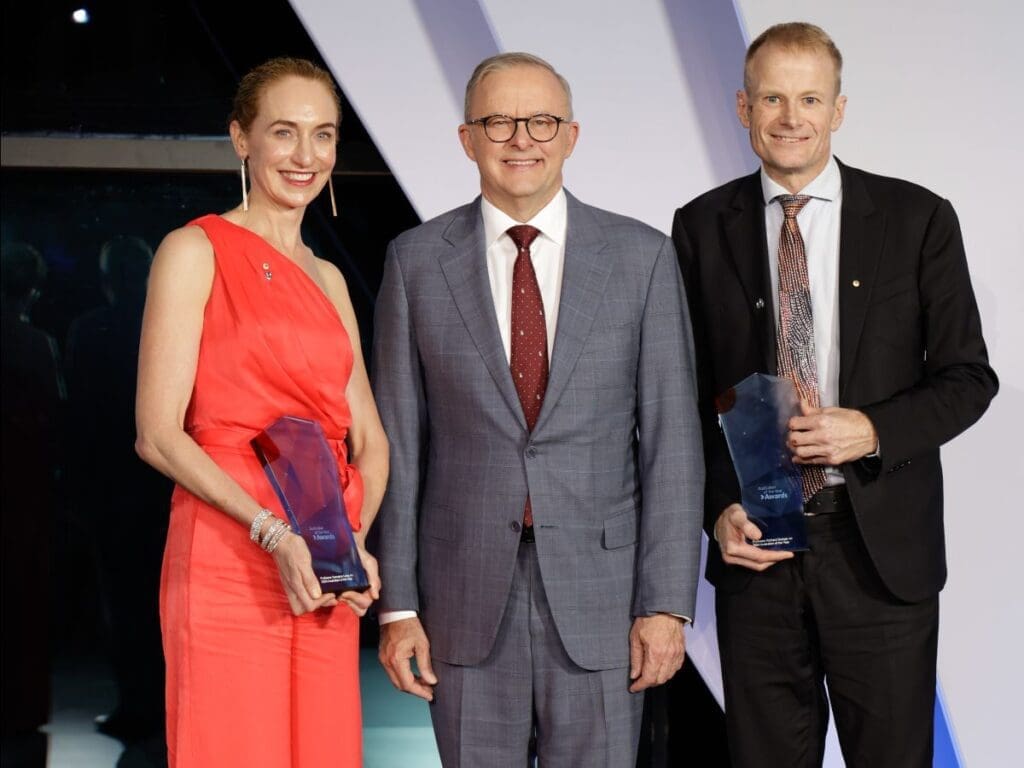
Congratulations
Professors Richard Scolyer and Georgina Long were named Australians of the Year.
Several Fellows were recognised with Orders of Australia. They are:
- Professor Sally Dunwoodie AO FAHMS
- Professor Ian Hickie AO FASSA FAHMS
- Professor Sarah Robertson AO FAA FAHMS
- Professor Joseph Trapani AO FAA FAHMS
- Professor Fiona Wood AO FAHMS
- Professor Carmel Hawley AM FAHMS
- Professor Christopher Maher AM FAHMS.
Fellows in the news
Professor Louise Baur reflected on the Academy’s accomplishments in 2023, and goals for 2024, in an article for COSMOS. The article was shared by Close the Gap on their own channels.
Several AAHMS Fellows were included in the ABC Science Show’s top 100 Australian Scientists.
Professors Georgina Long and Richard Scolyer won the Australian of the Year award, and took the opportunity to promote sun safety and the importance of investing in medical research. Their win was covered by many outlets, including 2GB, A Current Affair, BBC, The Guardian and the ABC.
Professor Tom Kay’s clinical trial into a ground breaking new treatment for type 1 diabetes published in the New England Journal of Medicine.
Professor Di Yu discusses immunotherapy and children’s brain cancer with The Australian.
Professor Anton Peleg’s team’s work on antibiotic-resistant infections is the subject of a documentary, Last Chance to Save a Life, airing on SBS on 15 February.
Professor Steve Wesselingh wrote about gender equity and NHMRC grants for the NHMRC news site.
Professor Georgina Long’s melanoma vaccine clinical trials were covered by The Australian.
Professor Andrew Whitehouse discussed the NDIS and autism with The Australian. He also talked to The Guardian about his role on the national school funding board.
Professor Sophia Zoungas published new findings regarding the treatment effect of low-dose aspirin on incident type 2 diabetes.
Professor Sharon Lewin shared her insights in HIV research with TheBody on why having an effective HIV treatment is not enough and there is still need to pursue an HIV cure.
Professor Peter Doherty was interviewed by the ABC for the Summer Reading podcast series.
Professor Danielle Mazza addressed in an article for Monash University achievements and further key issues in reproductive health in Australia. She also discussed the survey results of the Women’s Health Survey Report released by the Victorian Government, in an article on newsGP.
Professor Brendan Crabb spoke to the ABC, sharing COVID-safe strategies by Australian scientists. He also wrote for NewsGP on why the emergence of JN.1 is significant.
Professor Ian Hickie published The Devil You Knew exploring the spectre of depression and dispelling myths, which was reviewed by Glam Adelaide. He also spoke to SBS News about why young people feel isolated and lonely. Professor Hickie was also featured on ABC’s All in the Mind podcast, discussing myths about depression.
Professor Stephen Duckett spoke to ABC Breakfast Melbourne about Medicare’s legacy 40 years on.
The Academy recently revised its privacy policy and privacy collection statement, which can be found online here.

